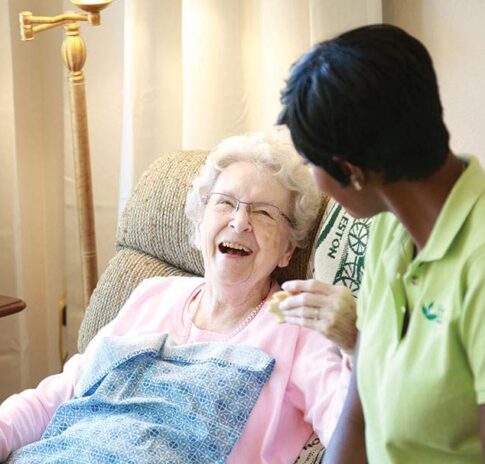Another great post by guest blogger Joni Aldrich. This month, Joni addresses common myths associated with cancer.
A myth is “an unfounded or false notion.” Although not usually considered dangerous, in the wrong context—such as associated with a cancer diagnosis—myths may lead to serious concerns.
All cancers are created equal.
With over 100 different types of cancer, don’t believe they are all created equal. Your own body chemistry, stage at the time of diagnosis, and overall health require special consideration in an effective treatment regimen. In The Saving of Gordon: Lifelines to W-I-N Against Cancer, we discuss the four cancer cash cows (lung, prostate, breast, and colon cancer), the many other rare forms of cancer, the difficult combination cancer diagnosis, and the different approaches necessary to find a treatment facility for each of these.
Every cancer treatment facility can treat most types of cancers.
We all know that the key to success is location, location, location! Isn’t it ironic that we use this guideline regularly, but when faced with the difficult decision of where to receive cancer treatment, families (admittedly in the shock and awe phase) may not be as particular? Be particular. That may involve some challenges, but putting your life into the hands of the wrong treatment center can be catastrophic. Even the best cancer treatment facility will tell you that they are better equipped and educated to treat some types of cancers than others.
You will use the same facility throughout your cancer care.
You could be diagnosed at one facility, have your cancer treatment regimen defined at another (where you may or may not have some or all of your treatments), and then your “home base” facility may provide some of your care. Cancer is a complicated disease.
Your insurance company will work with you to find the best treatment center. Maybe or maybe not. You may have a fight on your hands. It’s in the best interests of everyone concerned to have the right treatment. Does the insurance company really want to pay for ineffective treatments? Communication is crucial.
If you don’t have insurance, you won’t receive treatment. A good friend just died after a long battle with cancer at a top university hospital in Indiana. He didn’t have one stitch of insurance. While this situation is more of a challenge (particularly since you may not have as many choices), you can get treatment. Most facilities have a financial aide or social worker available to help.
All oncologists are created equal.
Sadly, that isn’t the case. In The Saving of Gordon: Lifelines to W-I-N Against Cancer, I cover the bases on the best methods for finding an oncologist. (It’s in the chapter aptly named: Would You Hire a Plumber to Be Your Electrician?)
Every oncologist can treat most types of cancer.
Just like all specialists, there are special specialists. Expect the best for your type of cancer. Don’t be pushed off to the “best in that facility”—you want the best in any facility! After months of ineffective treatment, we finally got Gordon to the right cancer treatment facility. I didn’t want just any of the physicians there (even thought the whole facility specialized in multiple myeloma)—I wanted the head of the department, or the head of research. Ask for the best of the best, or a physician that works next to the best of the best.
You will have the same oncologist for all treatments.
Generally, there are clinical oncologists (the boss), medical oncologists (for chemotherapy), surgical oncologists (for surgery), and radiation oncologists (for radiation therapy). You will likely have a whole oncology team. Your job is to keep them communicating effectively.
I want an oncologist I like.
Bedside manner is great, but I’m sure you’d rather have an oncologist who will keep you out of bed. Gordon’s first oncologist was a very personable man. I regret every single day that he treated Gordon. Yes, you have to have a good relationship with your lifesaver, but actions speak much louder than words.
So, all oncologists are bad.
Absolutely they are not. I can’t imagine why anyone would want to devote his or her life to treating cancer victims, but I’m so glad they do. Essentially, the problem comes in when an oncologist oversteps his or her capabilities and believes that they can treat a cancer that isn’t in their realm of expertise.
All chemotherapy makes you sick.
This is probably the number one myth about chemotherapy, and it isn’t true. Just as some medicines cause you side effects and others do not, chemotherapy “cocktails” are different, and not all of them have the strong negative reactions that we have come to expect when the word “chemotherapy” is spoken. Chemotherapy is possibly the most known and most feared word associated with cancer, even though all cancers are not treated with chemotherapy.
Clinical trials should only be considered as a last resort. Cancer treatments and drugs are being developed so quickly, that the effects even 5-10 years out are not known. Clinical trials are available even when there are other treatment options. They often have many advantages (other than aiding with scientific advances that may be used in the future to prevent, diagnose, or treat cancer). Patients in clinical trials either receive the very best standard treatment or a new treatment that researchers feel is either equal to or better than the standard treatment. There may or may not be a clinical trial open that fits your cancer needs, but it’s important to ask your oncologist.
About Joni’s cancer books (available at www.basketofcare.com):
